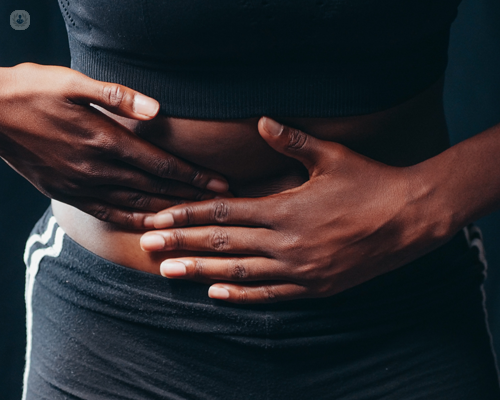Do you have a hernia? What shouldn’t you do?
Written in association with:A hernia occurs when an internal organ or tissue pushes through a weakened area of muscle or connective tissue. While hernias can vary in severity, certain activities and behaviours can worsen the condition or cause complications. Leading gastrointestinal surgeon Mr Jason Smith discusses some things to avoid if you have a hernia.

Avoid heavy lifting
Straining to lift heavy objects can put added pressure on the area affected by the hernia. This can make the hernia worse or cause it to become painful. If lifting is unavoidable, make sure to use proper lifting techniques, bending at the knees rather than the waist, and avoid holding your breath while lifting.
Avoid intense physical activity
High-impact exercises, such as running, weightlifting, or intense sports, can exacerbate the hernia and cause further strain on the muscles. Stick to light exercise, like walking or swimming, and consult your doctor for guidance on safe physical activity.
Don’t delay medical attention
While a hernia may not seem urgent at first, it can lead to complications like strangulation, where the blood supply to the affected tissue is cut off. Seek medical attention as soon as you notice a hernia, especially if it becomes painful, discoloured or swollen.
Avoid constipation and straining
Constipation can increase abdominal pressure and aggravate a hernia. To prevent this, avoid straining during bowel movements and include more fibre-rich foods in your diet, such as fruits, vegetables, and whole grains. Drink plenty of water to stay hydrated and ease digestion.
Don’t ignore worsening symptoms
If your hernia becomes increasingly painful, swollen, or shows signs of infection, it’s important not to ignore these symptoms. Worsening symptoms can indicate complications, and medical intervention may be necessary. Consult a healthcare professional if you notice any changes in your condition.
Avoid wearing tight clothing
Tight clothes, especially around the abdomen, can put pressure on the hernia site and worsen the condition. Opt for loose, comfortable clothing that does not compress the area.
By following these guidelines, you can help prevent your hernia from worsening and reduce the risk of complications.
Do you require expert hernia treatment? Arrange a consultation via Mr Smith’s Top Doctors profile.


